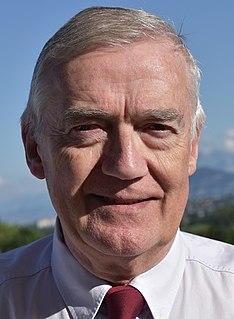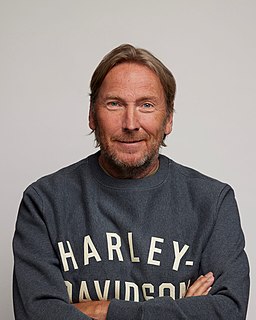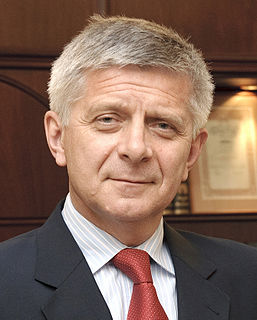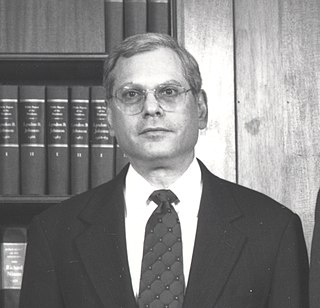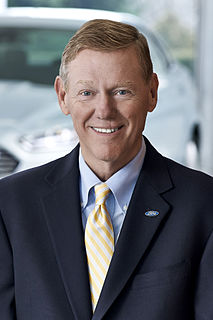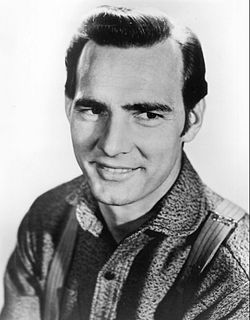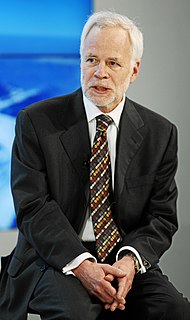A Quote by Frank-Walter Steinmeier
Europe has the potential to pioneer and supply a sustainable worldwide economy.
Related Quotes
In a fair society, the solution to unemployment is not to force people into workfare programmes which do little more than supply big companies with free labour. It's to create jobs that pay a living wage, for example, by investing in new sustainable infrastructure projects and boosting the jobs-rich low carbon economy.
Italy is the fourth-largest economy in Europe and the eighth-largest economy in the world, and its banking system is collapsing. And Germany is desperate. It must maintain its standard of living. It can only do that with exports and Deutsche Bank is very exposed to Italian debt. But so is the rest of Europe.
There are broader and narrower definitions of the new economy. The narrow version defines the new economy in terms of two principal developments: first, an increase in the economy's maximum sustainable growth rate and, second, the spread and increasing importance of information and communications technology.
Many first-time founders fail to understand the difference between the potential of the Total Addressable Market (TAM) and the very finite subsection they can hope to capture. No company ever captures the entire market they pioneer. Innovation doesn't happen in a vacuum, and others will jump in from the moment you've identified the potential.
Anybody interested in solving, rather than profiting from, the problems of food production and distribution will see that in the long run the safest food supply is a local food supply, not a supply that is dependent on a global economy. Nations and regions within nations must be left free and should be encouraged to develop the local food economies that best suit local needs and local conditions.


